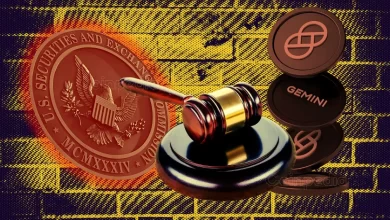
North Carolina's SB327 proposes investing up to 10% of state funds in Bitcoin, aiming to diversify reserves and leverage digital asset growth.
The bill emphasizes secure storage via multi-signature cold storage and mandates monthly audits for transparency and proof of reserves.
Bitcoin sales are restricted to severe financial crises, balancing potential gains with risk management.
North Carolina is making a bold move into cryptocurrency with the Bitcoin Reserve and Investment Act (SB327). Introduced in March 2025, this bill would allow the state to invest up to 10% of its public funds in Bitcoin. With a $9.5 billion budget, that’s no small decision.
If passed, this could make North Carolina one of the first states to officially hold Bitcoin as part of its financial reserves. But why is the state betting on crypto? And how will it ensure security and stability while investing in such a volatile asset?
Let’s take a closer look at this bill.
Leading the Way in Public Bitcoin Investment
If approved, North Carolina could become one of the first states to invest in digital assets for public funds, potentially inspiring others to follow. Currently, two Bitcoin reserve bills are under review – one in the House and another in the Senate – showing the state’s strong interest in cryptocurrency.
This initiative is part of a broader effort to diversify financial reserves and take advantage of Bitcoin’s increasing value and growing acceptance.
The bill, led by Republican Senators Todd Johnson and Brad Overcash, highlights North Carolina’s push to integrate cryptocurrency into its financial system.
To keep the investment secure, Bitcoin holdings will be stored in multi-signature cold storage, a method that adds extra protection against hacking and unauthorized access. The state will also conduct monthly audits to ensure transparency and provide proof of reserves.
Strict Rules on Selling Bitcoin
The bill sets clear conditions for selling Bitcoin. It can only be sold in the event of a serious financial crisis, and even then, strict requirements must be met. This approach ensures that Bitcoin remains a long-term asset rather than a short-term investment.
Balancing Opportunity and Risk
As digital assets become more widely used, states are looking for ways to include them in their financial plans. A move like this could bring new opportunities and potential benefits for taxpayers.
However, Bitcoin’s price can be highly volatile, and unclear regulations add risk to the investment. While the rewards could be significant, strong oversight and careful management are necessary.
Despite the risks, North Carolina’s Bitcoin plan shows the growing interest among governments and institutions in digital assets. The bill aims to balance investment benefits with strict security measures, possibly setting an example for other states considering similar strategies.
Never Miss a Beat in the Crypto World!
Stay ahead with breaking news, expert analysis, and real-time updates on the latest trends in Bitcoin, altcoins, DeFi, NFTs, and more.







